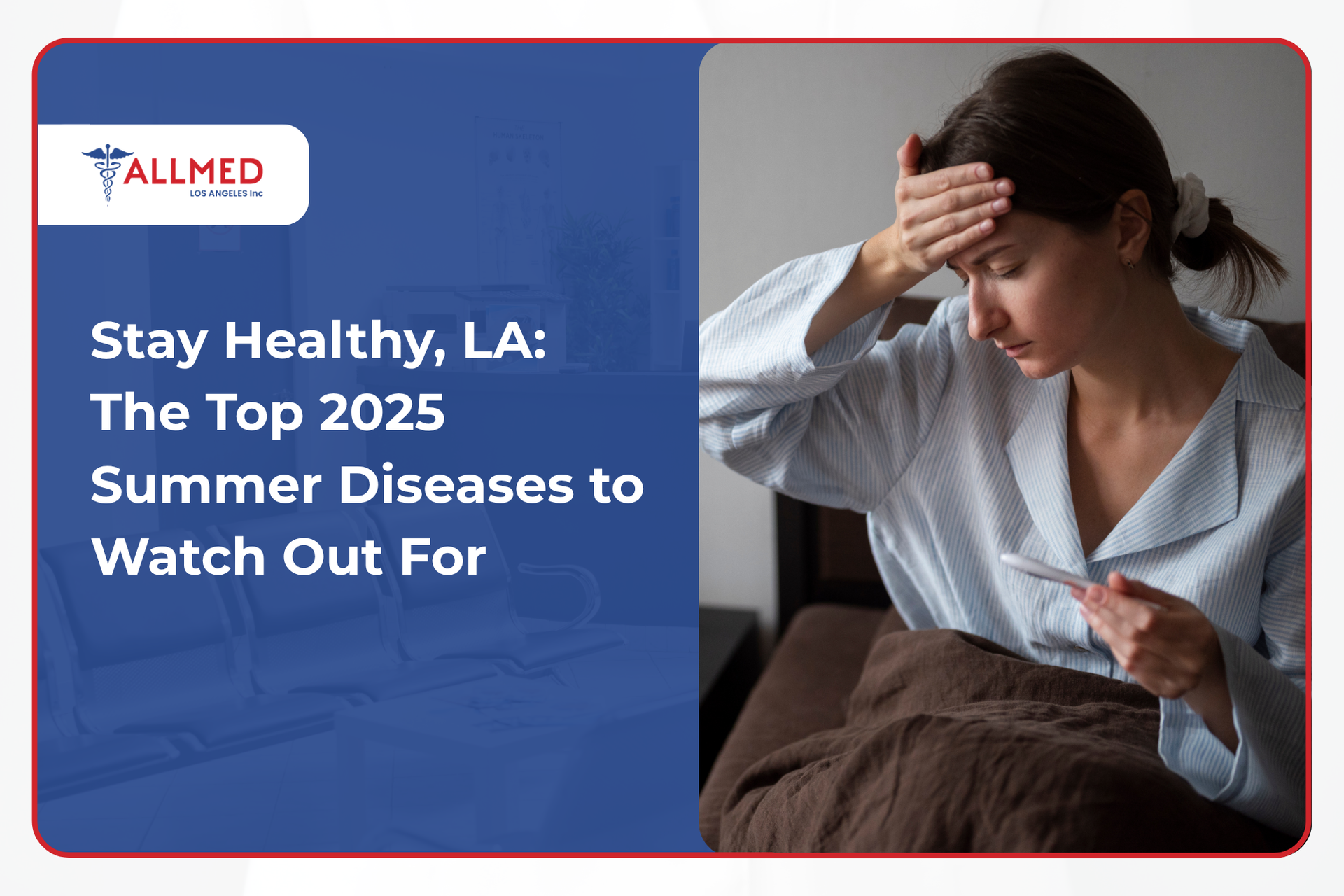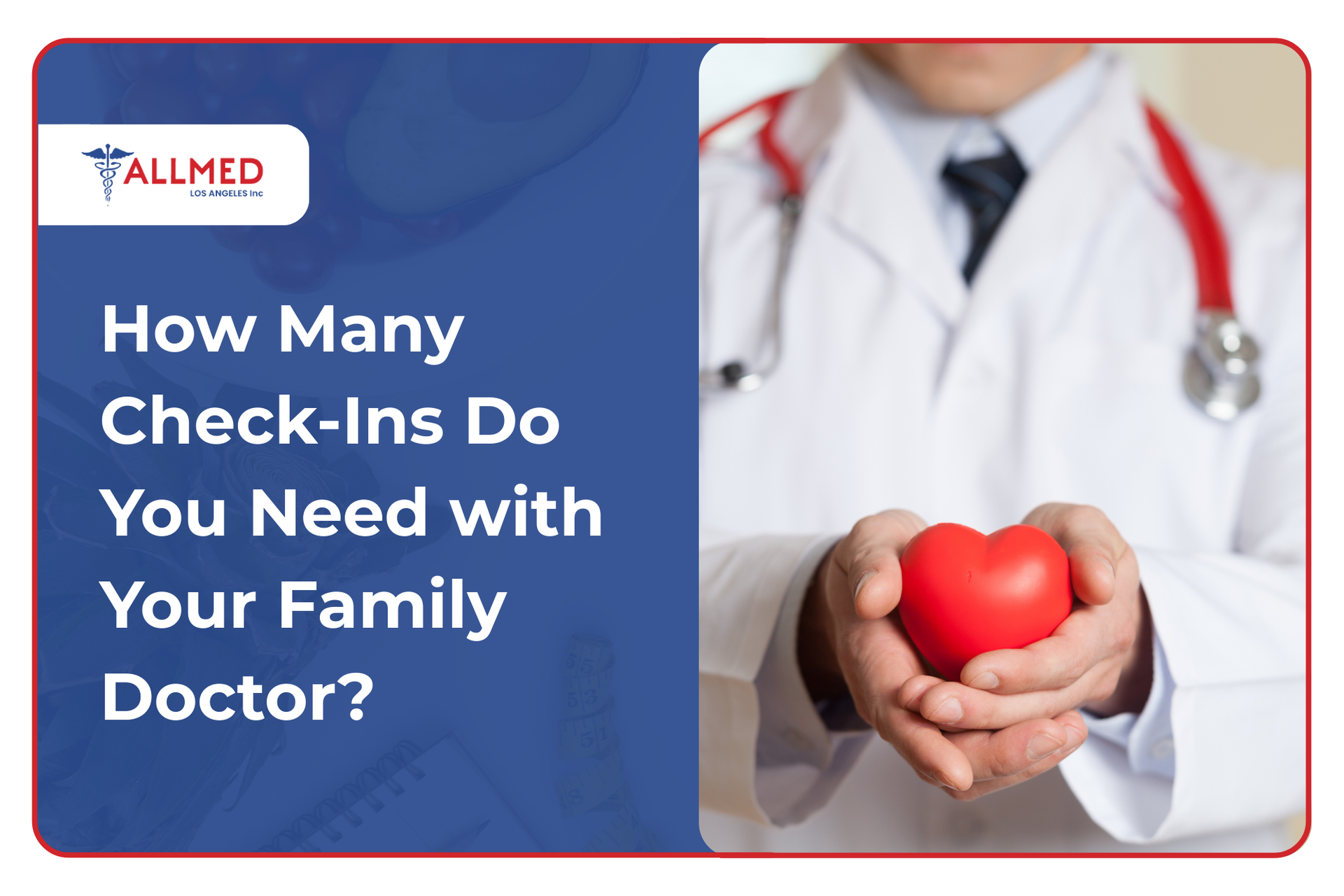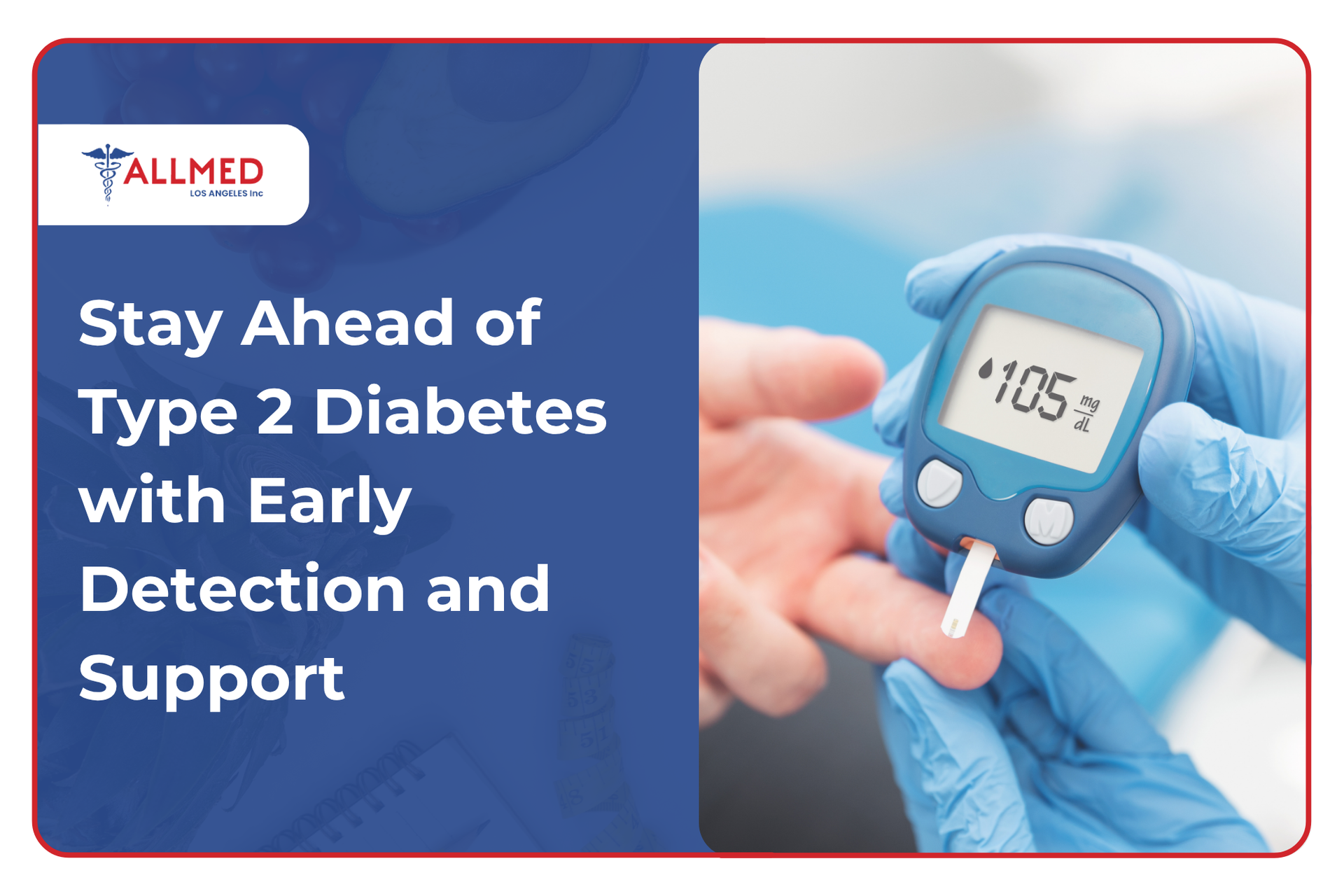Summer brings more than just beach weather and weekend hikes. For many families across Los Angeles, it also brings real concerns—fevers that linger, rashes that unexpectedly appear, and infections that disrupt daily life. Rising temperatures, standing water, and large gatherings all facilitate the spread of illnesses.
At
AllMed LA, we’re here to help you stay prepared and supported all season long. This guide covers the most common summer diseases in Los Angeles and practical ways to protect yourself and your family.
Stay Safe and Ready for Summer Fun
Book an Appointment Now
Why Summer Increases Disease Risk & Main Factors
Summer in Los Angeles raises the risk of illnesses that spread through insects, water, and close contact. These infections can affect anyone, often with little warning.
Here are some factors that you should stay vigilant of:
- Breeding Grounds for Mosquitoes and Fleas
Hot, humid conditions allow mosquito and flea populations to multiply quickly. Even small amounts of standing water from sprinklers, storm drains, and leftover rain can become a prime breeding ground for insects, especially in areas with limited sanitation infrastructure.
- Increased Outdoor Exposure
Due to the increased seasonal activities, such as picnics, festivals, and travel, you may also become more vulnerable to potential infections. These include contaminated surfaces, insect bites, and crowded environments.
- Hygiene Challenges in Community Spaces
Limited access to clean restrooms and handwashing stations can make it more challenging to maintain hygiene during outdoor events. When many people gather in shared spaces, the risk of spreading germs increases, especially when sanitation resources are stretched.
Staying healthy through the warmer months doesn’t have to feel overwhelming. Most
summer disease prevention tips come down to simple habits—things you can do at home, on the go, or as part of your everyday routine.
Quick Guide: Common Summer Diseases in LA
Let’s break down the most common summer illnesses in LA. Early detection of signs and symptoms helps you protect yourself and your family.
Knowing how to avoid
summer diseases isn’t just about protecting yourself—it’s about keeping your community safer, too. The best protection often begins with the basics: washing your hands, using mosquito repellent,
staying up to date with vaccinations, and knowing when to consult a healthcare provider.
Local Risk Snapshot
This summer, certain diseases that linger all year-round are becoming more of a threat across Los Angeles. By understanding which groups are at higher risk for the seasonal diseases that LA summers bring, and taking a few simple precautions, you can help keep yourself and your family safe.
Dengue Virus
As of 2025, California has confirmed dengue cases linked to both
local mosquito transmission and travellers returning from affected areas. Travelers and residents staying in mosquito-infested neighborhoods need to remain vigilant. Using insect repellent, opting for long-sleeved clothing, and clearing stagnant water can help eliminate the risk of mosquito bites.
West Nile Virus
This virus primarily affects people during the
summer and early fall. According to the California Department of Public Health, as of June 27, 2025, there has been only one fatal human case of West Nile virus.
The most at-risk groups involved older adults and other individuals with weakened immune systems, particularly those living in neighborhoods with standing water or dense vegetation. It’s essential to protect yourself and your family by wearing long sleeves, using anti-mosquito repellent, and removing standing water from around your home.
Hepatitis A
Hepatitis A cases continue to rise in LA County this year, with outbreaks linked to poor sanitation and low vaccination rates. Travelers, people living in crowded conditions, and individuals suffering from liver-related conditions face a higher risk. Staying up to date on vaccines and practicing good hygiene are the best ways to protect yourself and your loved ones.
Measles
Measles is making a quiet return in LA, with
one confirmed case in early March 2025. Unvaccinated individuals, especially children, are most at risk, followed by adults who are frequent travellers. Check your and your family’s vaccination status before travelling or attending large events to help keep your community protected.
Flea-Borne Typhus
Endemic to LA, cases of flea-borne typhus are rising again, with
four confirmed cases this year. Warm weather, increased stray animal populations, and higher flea exposure are driving the rise. This leaves those with pet animals or those living near stray animals at a higher risk of exposure. Limit contact with stray animals, keep your furry friends on a flea prevention plan at home, and seal your trash properly.
Airborne Threats
Even with the summer heat, both COVID-19 and flu continue to spread in LA, particularly in indoor settings like airports, offices, and public transportation. Older adults and people with chronic health conditions are most at risk. Staying up to date with vaccines and boosters, wearing masks in crowded areas, and maintaining good personal hygiene can help lower your risk.
Stay Healthy this Summer with Allmed LA
Summer is one of the most anticipated seasons in LA. But with all the fun and activity comes the need to be proactive in protecting yourself and your family from exposure to germs, insects, and other diseases. We want you to make the most of your summer—safely and confidently.
At
Allmed of Los Angeles, we’re here to help you navigate all of it—whether it’s answering questions, giving guidance, or making sure you’re up to date on your boosters and vaccinations. However your summer looks, we’re here to help you stay healthy.
Make Your Health a Year-Round Priority
Schedule a Consultation Now
Frequently Asked Questions
Do I need a new vaccine or booster for summer 2025?
It depends on your health status and travel plans. For example, Hepatitis A and MMR boosters may be recommended if you haven’t had them in years or are exposed to high-risk areas. Schedule a consultation with one of our specialists for summer-specific vaccination recommendations.
How can I tell the difference between dengue, the flu, and COVID-19?
These illnesses can all cause fever, body aches, and fatigue. Dengue often includes a rash and intense joint pain, while COVID-19 may affect taste and smell. The flu typically comes with sudden chills, cough, or sore throat. If you're unsure, consult a healthcare provider or book a consultation with us. Testing is the only way to know for sure.
How do I know if a rash is from a mosquito bite, measles, or something else?
Mosquito bites tend to be minor, itchy bumps. Measles rashes are flat, red spots that start on the face and spread. Dengue and flea-borne typhus may also cause rashes. If you're unsure or if the rash spreads rapidly, consult a healthcare provider for evaluation.
I have pets—how do I reduce the risk of flea-borne typhus at home?
Keep pets on a vet-approved flea prevention plan, regularly clean pet bedding, and vacuum often. Avoid contact with stray animals and ensure outdoor trash bins are tightly sealed.















